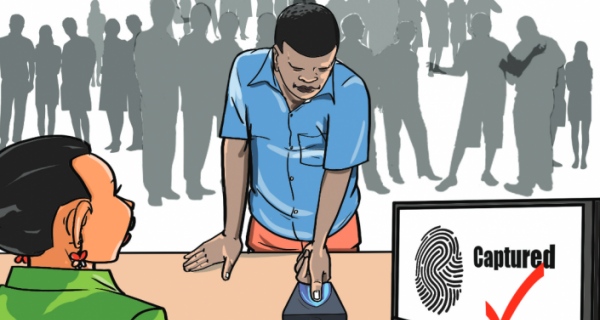Digital discrimination in Uganda
It is the same as in any other place. Or maybe not?
Uganda’s digital identity card system is a cocktail of discrimination, says a study just presented by APC.

Its finding include that:
“25% of male and 13% of female respondents were uncomfortable with sharing a lot of personal information before getting the ID. Information relating to ethnicity, tribe, parents details, TIN number, occupation, address and spouse details were considered to be an invasion of their privacy as well as a ploy by government to spy on them."
“In order to access public services such as health care, agricultural inputs (seedlings and piglets, among others) and mosquito nets, 70% of the respondents said that they were required to present a National ID, and 85% of these respondents were denied a public service."
“It is evident that the National ID is slowly becoming the only legally acceptable national identification document, which is sadly limiting the enjoyment of basic fundamental rights in Uganda, and in the process exacerbating exclusion, inequality and discrimination, especially among the underprivileged members of society."
It’s happening everywhere…
… but not in the same way. At first sight, this situation, and the findings of that study, are very similar to those I recently commented about Indonesia. There is a very interesting difference, though, or so it seems from the conclusions of the study:
- in Indonesia, there have been complaints about discrimination towards specific groups
- in Uganda, it seems from the study that discrimination does not discriminate, so to speak.
From that study, that is, everyone in Uganda seems to have almost equal opportunities to have or not have problems with the digital identity card systems, regardless of their ethnicity, sexual orientation and so on. Is that really the case? I would like to know. Please tell me!
Who writes this, why, and how to help
I am Marco Fioretti, tech writer and aspiring polymath doing human-digital research and popularization.
I do it because YOUR civil rights and the quality of YOUR life depend every year more on how software is used AROUND you.
To this end, I have already shared more than a million words on this blog, without any paywall or user tracking, and am sharing the next million through a newsletter, also without any paywall.
The more direct support I get, the more I can continue to inform for free parents, teachers, decision makers, and everybody else who should know more stuff like this. You can support me with paid subscriptions to my newsletter, donations via PayPal (mfioretti@nexaima.net) or LiberaPay, or in any of the other ways listed here.THANKS for your support!